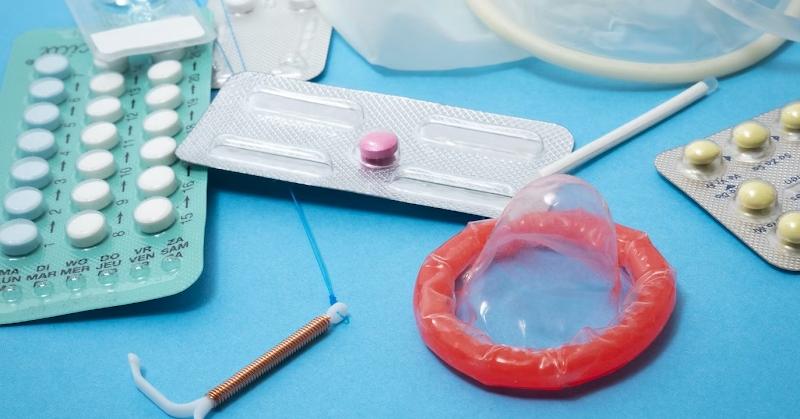The discovery of modern chemicals has altered every aspect of human life, including female beauty and hygiene. Natural makeup and simplistic hygiene products have become relics of a bygone era.
Today, the market is flooded with brands competing against each other to offer women a taste of their youthful glow. However, all of it is coming at a great price. They say, “If beauty hurts, you’re doing it wrong.” Sadly, that’s exactly what a vast majority of women have to settle for today.
According to McKinsey & Company, e-commerce in the skincare and beauty market quadrupled between 2015 and 2022. This market is expected to have a value of $580 billion by 2027. In this article, we will discuss how women are suffering for their beauty and health.
Does that mean there are no non-toxic brands in the female beauty and hygiene space? Undoubtedly not, but we will focus on the norm (not the exceptions). Keep reading to understand how feminine products have created a state of emergency in terms of women’s health.
Toxic Chemicals in Menstrual Products
The Time Magazine published an article last year that raised serious health concerns. It was found that female sanitary products, including pads, tampons, and underwear liners had PFAS in them. Short for per- and polyfluoroalkyl substances, PFAS are a complex group of 12,000+ chemicals.
These chemicals have been used in various industrial applications since the 1950s – firefighting foam, non-stick cookware, stain-resistant carpets, etc. Today, they can be found everywhere, from dental floss to tap water.
However, this would not be alarming if PFAS were harmless. The Environmental Protection Agency (EPA) mentions the ills associated with PFAS exposure – high blood pressure, infertility or decreased fertility issues, compromised immune system, certain cancers, and low birth weight in infants.
In light of such health risks, the presence of PFAS in female sanitary products is a red flag. What’s even worse is that out of the 22 products tested, at least 13 of them advertised themselves as ‘organic,’ ‘non-toxic,’ and ‘sustainable.’
Some sanitary napkins even contain a well-known allergen and carcinogen called formaldehyde. The same may also be found in some brands’ feminine washes. For centuries, women have been using cloth for their lady business.
Indeed, this practice is no longer sustainable. Notwithstanding that, tighter regulations must be set in place to eliminate such chemicals from sanitary products. If not, this may explain why cases of young women developing cancer, heart disease, infertility, etc., are on the rise.
The Birth Control Catastrophe
courtesy of Planned Parenthood has made several types of birth control options available for the modern woman. These include oral contraceptives, vaginal rings, birth control shots, and intrauterine devices.
Each of these comes with its set of risks and complications. The Planned Parenthood website itself mentions the various side effects of oral contraceptives, including mood changes, changes in vaginal discharge, sore breasts, etc. There can also be serious health risks like that of developing pelvic inflammatory disease and cervical cancer.
Another major example would be intrauterine devices like the Paragard Copper IUD (these have received much negative attention lately). It is a T-shaped non-surgical device with a coiled copper wire and plastic frame. The Paragard IUD is to be implanted in the cervical canal.
The device was touted to be so effective that it could stall conception for 10 years (after which it must be removed). Sadly, many women have experienced painful complications at the time of device removal. According to TorHoerman Law, some of the common injuries include infection, device breakage and migration, organ perforation, and infertility.
Besides such physical injuries, it was found that the device’s producers, Cooper Surgical and Teva Pharmaceuticals, were aware of such risks. Still, they failed to issue proper warnings (even healthcare providers were kept in the dark). Injured women have filed a Paragard lawsuit, currently handled by the Federal court of Georgia.
Over 1,700 lawsuits are pending, and attorneys are preparing for Bellwether trials to be held in 2024. If anything, such side effects only highlight how women’s safety is at risk.
Risks Involved in Cosmetics and Personal Care Products
The harmful chemicals used to produce women’s makeup and skincare products have been a matter of discussion for years now. Some of the most common chemicals found in products like shampoos, creams, lipsticks, makeup setting sprays, etc., are parabens, sulfates, synthetic colors, toluene, talc, and lead.
Some of these can cause immediate allergic reactions like skin rashes, wheezing, eye irritation, and headaches. However, others can even have serious repercussions like cancer. One case in point is the humble-looking hair straightener or relaxer.
This personal care product is mainly used by women with wavy or curly hair (to straighten their locks). Its application is highest among the Black community where women tend to naturally have tightly-coiled hair. Studies have found that chemicals like formaldehyde found in hair relaxers can lead to cancers of the breast, uterus, and cervix.
The risk is 30% higher among women who use chemical-laden hair straighteners six times a year or more. In light of the dangers involved, the Food and Drug Administration (FDA) has proposed to ban hair relaxers with formaldehyde.
Despite the ban, it is advised that women choose non-toxic alternatives like oil and silicone treatments, keratin products, or heat styling methods. As for beauty and skincare products, sustainable and non-toxic brands should be selected after careful research.
Let’s close by touching a bit on how to make an informed choice. Start by checking the labels and avoid at least three chemicals at all costs – PFAS, parabens, and talc. Look for reliable certifications that prove the brand produces parabens and sulfate-free products (merely claims and advertisements don’t count).
The problem is deep-seated and rampant, but customers’ votes matter. If every woman insists on sustainability (with proof), it’s only a matter of time before chemical products will be wiped out. Women will be able to enjoy beauty that is clean, safe, and sustainable.
